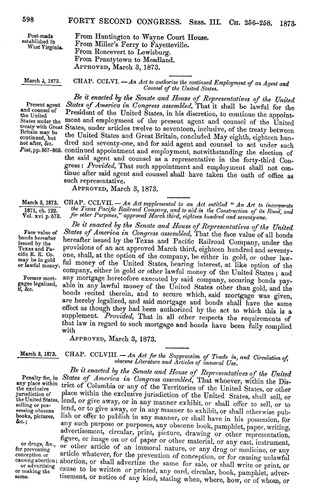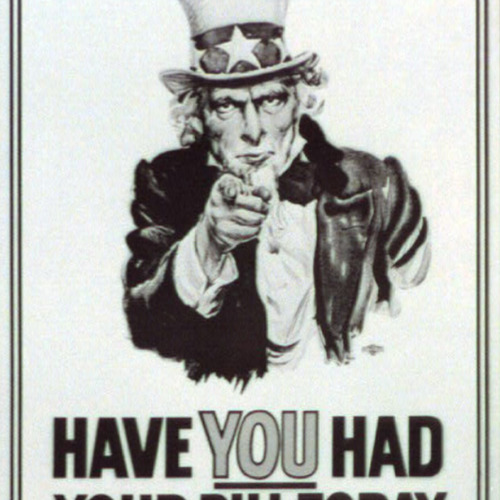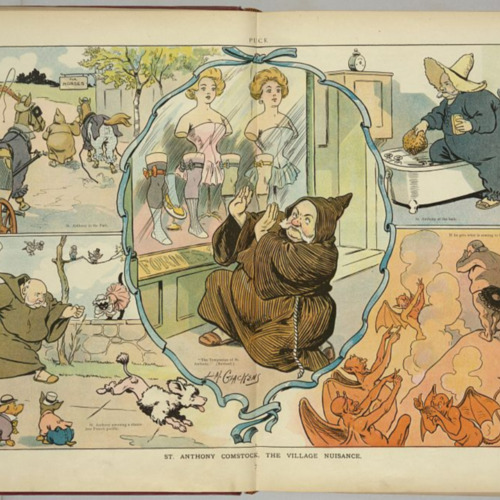Purity Legislation
The Comstock Act
The Comstock Act is a law that was passed on March 3, 1873 by the U.S. Congress. The law prohibited the mailing of any "indecent" publications as well as the possession of any obscene materials, including pamphlets, pictures, advertisements, and books. It had been drafted a year prior by Anthony Comstock, who felt that pornography and prostitution crowded New York's streets and would corrupt the youth. As a devout Christian, he sought to eradicate these obscenities which he found to be immoral.
Comstock began his crusade by providing information about sex traffickers to the police in the 1860s and then targeting the birth control industry due to his appall at the graphic nature of the advertisements that they promoted. He was of the view that the mere option of contraceptives provoked overly lustful behavior. After passing the law, Congress appointed Comstock as a special agent in charge of enforcing the law. Because obscenity was not explicitly defined, Comstock was able to make arrests based on his arbitrary definitions of obscenity.
Female Public Response
The women who needed information about these contraceptives were outspoken in their dissent. Newspaper publishings, like the Comstock one, made it clear that the women resented the enactment of these laws and found it excessively controlling. Many women, like Sanger, continued to defy these laws regardless and published writings and advertisements about contraceptives.


